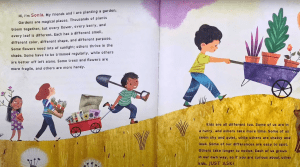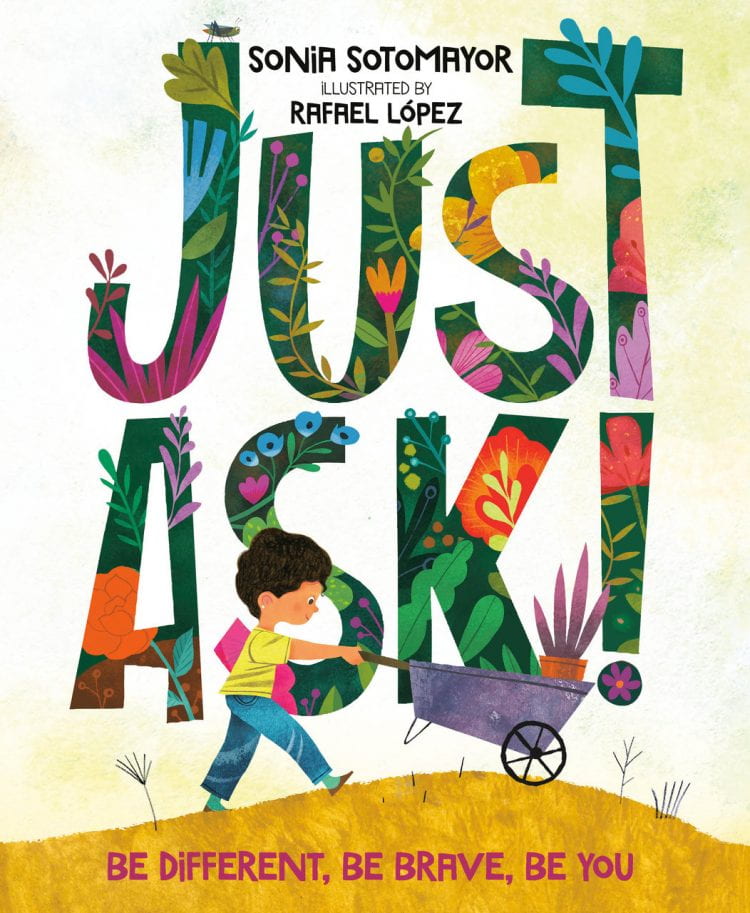Written by Associate Justice of the Supreme Court of the United States and the first Hispanic Latina member of the court, Sonia Sotomayor. Illustrated by Rafael Lopez.
Be Different. Be Brave. Be You.
Justice Sotomayor gifts the reader with a textual conversation about differently abled children. She gracefully makes a connection between the many different plants in a garden to the many different and equally beautiful people who inhabit our planet. Each of us is wonderfully made and differences only enrich our lives… this book teaches us that we each grow in our own way.

Justice Sotomayor includes twelve of what she believed to be the most common conditions and introduces the reader to 14 children. We meet Sonia with diabetes who leads us through the story, Rafael with asthma, Anthony who is in a wheelchair, Madison and Arturo who are both blind, Vijay who is deaf, Bianca with dyslexia, Jordan and Tiana with autism, Anh who stutters, Julia with Tourette’s syndrome, Manuel with ADHD, Nolan who has a nut allergy, and Grace with Down syndrome. Each child’s experience is lead into the next with a question to the reader; I thought this was a wonderful way to transition characters and introduce their unique story.
I read this book to my kids (the true critics) and they strongly connected to the explanation given by each character about their condition. The description gave the text a deeper meaning by providing an understanding for children who are learning what differently abled looks like.
Everyone who reads this book will see someone they know in the text. Justice Sotomayor’s personal experience being called a drug addict for being “caught” putting away her insulin kit inspired this book.”Please don’t assume the worst in people, JUST ASK.” Simply because we do things differently doesn’t mean it is wrong. Instead we should view different as bringing richness to the world.
This book would be wonderful in an elementary setting, promoting the students ability to recognize stereotypes and relate to people as individuals rather than representatives of groups. This is a great window or mirror into understanding social justice standards and developing language and knowledge to accurately and respectfully describe how people (including themselves) are both similar to and different from each other and others in their identity groups.
“I want to inspire them (children) to learn, but also to be more forward thinking about how we could do things better.” – Justice Sotomayor
It should be noted there is a Spanish addition as well.
